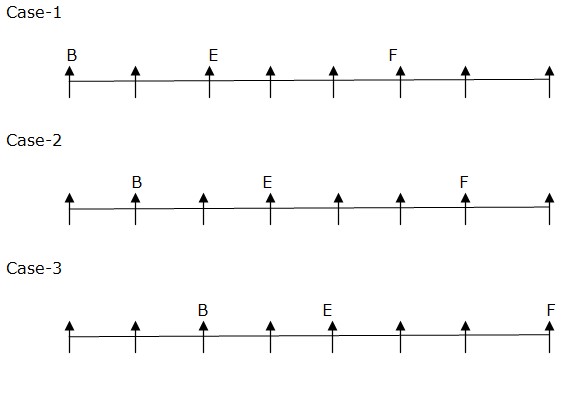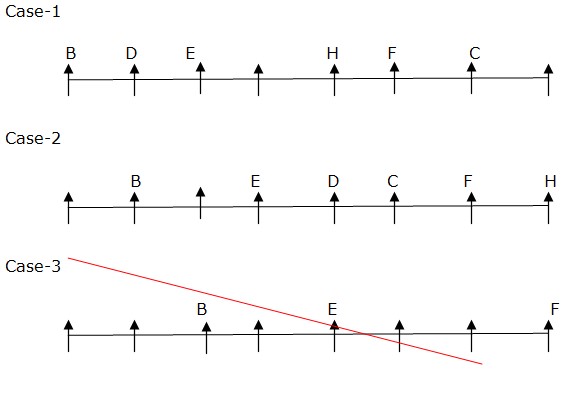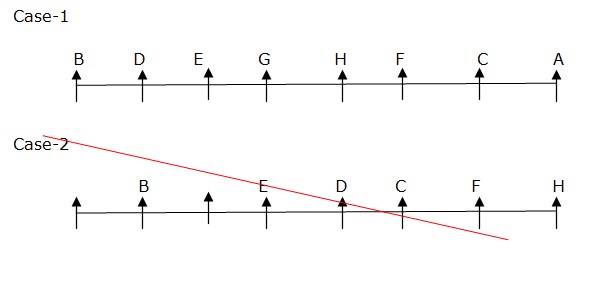Question
Who among the following person sits third from the
right end? Study the following information carefully and answer the questions given below. Eight persons- A, B, C, D, E, F, G and H are sitting in a linear row facing the north but not necessarily in the same order. F sits fifth to the right of B. Only two persons sit between F and E. The number of persons sitting to the right of E is one less than the number of persons sitting to the left of C. Only one person sits between C and H. D sits third to the left of H. Only three persons sit between A and G, who doesn’t sit at the end of the row.Solution
We have, F sits fifth to the right of B. Only two persons sit between F and E. From the above conditions, there are three possibilities  Again we have, The number of persons sitting to the right of E is one less than the number of persons sitting to the left of C. Only one person sits between C and H. D sits third to the left of H. Here, Case-3 gets eliminated
Again we have, The number of persons sitting to the right of E is one less than the number of persons sitting to the left of C. Only one person sits between C and H. D sits third to the left of H. Here, Case-3 gets eliminated  Again we have, Only three persons sit between A and G, who doesn’e sit at the end of the row. So Case-2 gets eliminated. Hence Case-1 shows the final arrangement
Again we have, Only three persons sit between A and G, who doesn’e sit at the end of the row. So Case-2 gets eliminated. Hence Case-1 shows the final arrangement 
Coconut is ___ type of plant cultivated in ____ climate.
Pungency in radish is due to _____
Which post-harvest technology is employed to extend the shelf life of fruits and vegetables by retarding the ripening process?
Which type of grafting is also known as stone grafting?
What is the reason behind cell elongation in internodal regions of plants?
Cultivated strawberry is _____
Among the following species, which is primarily used for the commercial extraction of Rose oil?
Strawberry is commercially propagated by ___
Best export variety of mango is
Which of the following is also “grand period” of rainfall in India?
Relevant for Exams:



